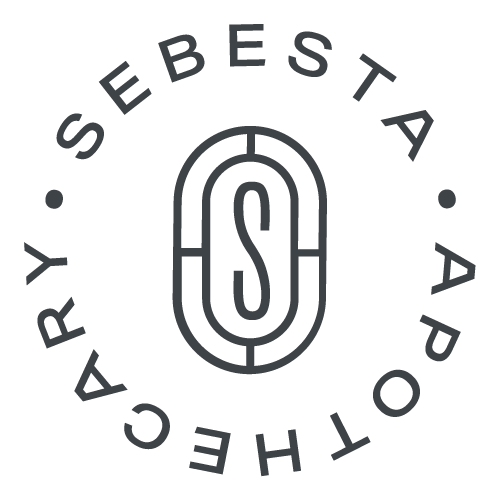
Ingredient Spotlight: Bentonite Clay | An Ingredient With as Many Uses as Duct Tape!
Share
Bentonite clay is an amazing ingredient! We use it in a few of our products throughout the Sebesta Apothecary product line (Charcoal Face Wash, Adventure Soap, Shave Soap) but also use it around the lab and house for daily use. It is something you want to keep on hand! We offer it here in its pure form.
The world’s largest deposit of Bentonite Clay is found near Rock River, Wyoming. This area has a natural formation of volcanic ash that has been mined since the late 1800s. This formation was caused by geological formations back in the cretaceous period.
Because of the unique chemical makeup and physical characteristics of Bentonite clay it has about as many uses as duct tape! You will hear of its use in many industries including agriculture, landscaping, healthy and beauty, and even winemaking. Part of the reason it is so versatile is that the clay is negatively charged, this results in some pretty powerful detoxifying properties.
How to use: While we provide a series of actual Bentonite Clay recipes here these are general examples of some basic ways to use it.
- Paste: Can be as basic as clay and water mix. When used like this the expectation is that you apply to the skin and allow the clay to dry.
- Poultice: In this method, the paste is applied then covered with a plastic wrap then gauze or a cloth to extend the time it is wet directly on the skin. This can be most helpful for wounds or skin irritations that need a bit more detoxifying than the paste application.
- Added to existing products: Add to existing products you have throughout the house for additional or targeted detox. Some examples would be adding a bit of clay to either a shampoo bottle or liquid body wash. Be sure to shake well since it tends to concentrate at the bottom of the container.
Just a few examples of ways it can be used:
- Soothe skin irritations from plants or insects
- Promote healing of wounds, burns, or bruises
- Anti-aging properties, acne treatment
- Pest control around the house and yard
- Cleaning in the kitchen and bathroom
Caution about working with it:
This clay is SUPER SOFT, very fine and light so wear a mask and safety glasses when working with it to avoid breathing it in or getting in your eyes. To work with it, use only plastic, wood, or silicone utensils.
Why no metal containers or utensils?
Because the clay absorbs toxins, so you want to reduce the risk of it absorbing metals from either the container or the utensils and lose its potency. You want to save all that detox power for when you are putting it to use!
Shelf-life and Storage
- Pure form: Because it is a naturally occurring mineral, shelf-life doesn’t apply here when it is dry and in its pure form. We recommend you keep clay sealed in an airtight non-metallic container.
- In recipe: Once you have mixed the clay in a recipe, you will want to either use it all immediately or place it in an airtight non-metallic container to avoid the mixture drying out. Place in the refrigerator for safekeeping and use it within a week.
Disclaimer: Please note that my experience should never replace medical advice. Talk to your doctor if you have any questions, have a severe infection burn or wound.
- Kim
